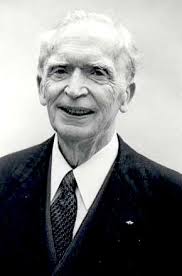A Quote by Andrew Motion
I wish I'd been better able to resist the sense of obligation to write some of the poems I did. It's in the nature of commissioned work to be written too much from the side of your mind that knows what it's doing, which dries up the poetry.
Related Quotes
I've always thought that the balance between the side of my mind that knows what it is doing and the side that really hasn't got a clue has to be carefully maintained because if you write too knowingly then you get chilly, and if you write too unknowingly you write bollocks that nobody else can understand.
When I am writing poetry, I try to make my mind go a little lazy, to not think too much, as a way of opening up the part of the brain that makes poems. If I'm successful in this part of the process I'm often not. If my mind gets too lazy it will linger in familiar boring territory, it's like my mind can stroke the physical world.
If I'm still wistful about On the Road, I look on the rest of the Kerouac oeuvre--the poems, the poems!--in horror. Read Satori in Paris lately? But if I had never read Jack Kerouac's horrendous poems, I never would have had the guts to write horrendous poems myself. I never would have signed up for Mrs. Safford's poetry class the spring of junior year, which led me to poetry readings, which introduced me to bad red wine, and after that it's all just one big blurry condemned path to journalism and San Francisco.
The question now becomes about defining your terms. What is literature? Unless we allow it to encompass the oral tradition from which it grew, which means taking it back to Homer and beyond, it demands the written word - poetry and prose. [Bob] Dylan is no slouch at the written word, both in its own right, and transcribed from his lyrics, which have often been acclaimed as poetry and may well stand up as such. But that is not his métier.
I believe it's impossible to write good poetry without reading. Reading poetry goes straight to my psyche and makes me want to write. I meet the muse in the poems of others and invite her to my poems. I see over and over again, in different ways, what is possible, how the perimeters of poetry are expanding and making way for new forms.
If you can find two poems in a book, it could be a pretty good book for you. You know, two poems you really like. There are some poets who are fairly big names in contemporary poetry and who write a book and I might like three or four poems in the book, but the rest of them don't appeal to me personally; but I think that's the way it really ought to be. I think it's really a rare thing to like everything that somebody has written.
You see, writing down your meanderings gets something started deep in the recesses of your brain. That distant part of your mind knows that you want to write stories or poems or plays and not endless jabber, and it will get to work. It may take a while. You may have to write this stuff for hours or days or weeks, but eventually that subterranean part of your brain will come through and begin to send you ideas.
The first thing to remember is the dual nature of your mind. The subconscious mind is constantly amenable to the power of suggestion; furthermore the subconscious mind has complete control of the functions, conditions, and sensations of your body. Trust the subconscious mind to heal you. It made your body, and it knows all of its processes and functions. It knows much more than your conscious mind about healing and restoring you to perfect balance.






































